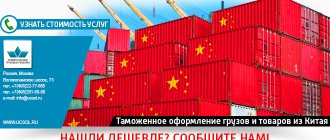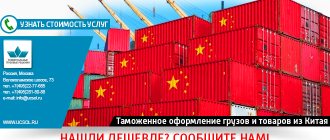International trade rules have changed for Russians from January 1, 2021. Some have said goodbye to shopping in foreign stores, while others, on the contrary, are rubbing their hands contentedly.
Everything is not as fatal as it might seem. It is still profitable to buy in foreign stores . Even more profitable than it was before.
Let’s look into the details of how and what you now need to pay for, how not to pay and how to solve possible problems.
Rules for international purchases in Russia from 2020
As all fans of online shopping in Russia know, from January 1, 2021, the duty-free customs limit in our country was reduced.
▹ Postal and courier services: duty-free limit reduced to 200 euros. The permissible weight of one item is 21 kg.
The customs duty for exceeding the cost of a parcel over the customs limit has been reduced from 30% to 15%. The excess weight fee is now 2 euros per 1 kilogram overweight.
▹ When crossing the border in person (except by plane) : the duty-free limit has been reduced to 500 euros. Permissible weight no more than 25 kilograms.
For excess value we pay a duty of 30%, and for excess weight - 4 euros per kilogram.
▹ When crossing the border in person by plane: the duty-free limit has not changed and is up to 10,000 euros, as well as weight up to 50 kg.
Now that we have understood the rules, let’s look in detail at what the duty is formed from, how it is calculated, and also discuss the typical methods of paying it.
How the Federal Customs Service asked to update checkpoints to speed up customs procedures
At the first stage of dispatch, energy and excisable cargo are filtered out, the clearance of which is handled by the Central Energy and Central Excise Customs, respectively. Next, invoices are sorted based on the route the cargo arrived: for sea cargo, three EDCs have been created - Baltic, Novorossiysk and Vladivostok - covering the corresponding basins. For air cargo, 86.5% of which arrive at the Moscow aviation hub, its own EDC has been created there. The rest of the cargo, clarifies Ruslan Davydov, is registered at the Central Economic Register Offices at the place of the declarant’s Taxpayer Identification Number (TIN) or checkpoint. This, he explains, was done in connection with “the close interaction of the Federal Customs Service with the tax service.”
The official emphasized that only 5% of declarations were redistributed (in total, 5 million declarations are processed per year), mainly for sea and air cargo. The changes affected only the processing of declarations: actual control posts (PFC) were preserved where goods pass through.
Meanwhile, all market participants interviewed by Kommersant note the suddenness of the changes and even disagree in their assessment of their status: some call it an experiment, others call it a permanent measure.
The dispatch of goods declarations (DT) has changed “unexpectedly for many and without prior information,” says Timur Davitashvili, director of customs operations at Daxer.
There is no official information about the inclusion of dispatch from February 1 in open sources, agrees Elena Paramonova, director of the customs clearance division of Global Supply Chain FM Logistic: “The only mention of the planned implementation was published on the customs portal alta.ru in the “expert opinion” section at the end of December.” . “I have not seen information about this in open sources, for the most part it came as a surprise to us,” confirms Alexey Konyshev, head of the customs support department at Stalogistic. There is still no complete information from the Federal Customs Service on all the details of the new algorithm, emphasizes Milana Melamud, director of customs operations at Kuehne + Nagel in Russia.
According to market participants, the procedure should be regulated by an order from the Ministry of Finance on the powers of customs authorities to register customs declarations, the draft of which is at the stage of public discussion. In it, notes Deputy General Director of BMJ-logistics Konstantin Bondarenko, the business community offers its amendments and comments, so “the FCS experiment is not entirely clear”: “The reason why foreign trade participants were not informed in advance is also unclear, because the consequences of vehicle downtime, increasing the delivery time of goods, additional costs for inspection ultimately fall on their shoulders.”
How duty is calculated on goods
Example of a payment form: duty and processing fee
Until January 1, 2021, the customs duty applied to the monthly limit of purchases from abroad: it was calculated as the sum of the cost of all parcels entering the country received by one person per calendar month.
From January 1, 2021, the cost of each parcel or each border crossing separately is taken into account.
Previously, when purchasing 3 smartphones for 200 euros, it was necessary to pay a duty in the amount of: 200+200+200=600-500=100×0.3=30 euros. Now, in such cases, the duty is not charged if the devices are traveling in separate packages.
The purchase price includes shipping costs paid to the seller, as well as taxes and other fees. If there are additional carriers in the chain, costs are not taken into account.
Example: I purchased a $500 laptop from a private eBay store in the US with free domestic shipping. Delivery to Russia via a forwarding service from abroad cost $45.
Total purchase price in euros: 453 + 41 + (453 - 200) x 0.15 = 532, or 590 dollars (37,000 rubles).
A similar device in Russia costs ~ 70 thousand rubles. The benefit remains.
The final amount also includes a fixed fee of 250 rubles for registration, regardless of the cost of the investment.
The weight of parcels is taken into account in whole numbers, rounded up: importing a parcel weighing 33.3 kilograms will require payment of a duty for 3 kilograms, or 6 euros.
Payment is calculated in rubles at the rate of the Central Bank of the Russian Federation on the day the duty is calculated. The duty itself is calculated in various ways, which we will consider below.
Customs duties
Fee rates for customs clearance of goods are the fees charged by the government agency for the declaration and release of cargo. The amount is determined on the basis of Decree of the Government of the Russian Federation No. 863 of December 28, 2004 “On the rates of customs duties for customs operations.”
In most cases, without taking into account customs escort and storage, the amount of the fee is insignificant and does not have a significant impact on the cost, so it can not be calculated in advance.
When declaring electronically, there is a discount and fees are calculated at 75% of the tariff.
Preparation of documents required for customs
Due to the fact that most purchases from abroad are now subject to customs duties, the issue of the relevance of the data provided to customs is acute.
If there are not enough of them, the service will request data from the buyer, which will seriously delay delivery. In addition, a number of conflict situations are possible, which are resolved in different ways.
You should be prepared for this in advance. And everything, oddly enough, depends on the location of the store and the specific postal service that will handle the delivery.
What is needed for the declaration?
For purchases on popular sites and for delivery by courier services, the duty is charged when the information is received by the carrier. Along the track – 1 point
In general, to complete the declaration, you need to submit to the customs service, in addition to the invoice on the parcel itself:
- full name and passport details;
- current phone number and email address;
- TIN;
- links/screenshots for each ordered product on the store page.
Completing a declaration when purchasing from stores in the USA and Europe
Standard Invoice, also known as international customs declaration
Most Western online stores with direct delivery to Russia include an international customs declaration with the parcel, indicating the complete contents and final cost of the goods inside.
It is accompanied by an invoice - a detailed description of the product with store articles and links. In case the product is on sale or was purchased with discounts or coupons, the store provides a sales receipt.
All this is right on the order box. Thus, most stores independently prepare the documents necessary for crossing the border in a standard form.
The buyer in Russia can only pay the duty on time and pick up the parcel.
Customs value of goods
The concept of customs value includes the basis for calculating all mandatory customs duties listed above. The legislation establishes 6 methods for determining the customs value of imported goods, which are set out in detail in the Code of the Customs Union. For now, we will focus on the first method of determining customs value, which is most used from a practical point of view - based on the transaction price.
Contrary to popular belief, the customs value is not necessarily the same as the invoice amount from your Chinese supplier.
Of course, everything depends on the basic terms of delivery according to Incoterms, which we discussed in one of the articles. When contracting on EXW terms or group F terms (FOB, FCA, FAS), the following must be added to the customs value:
- expenses for purchasing goods;
- expenses associated with the purchase in a foreign territory;
- delivery cost to the Russian border.
For all delivery conditions, the customs value must include the cost of cargo insurance and license fees or royalties.
Completing a declaration when purchasing in stores in China and Southeast Asia
A familiar invoice form placed on Chinese parcels
Unlike Western trading platforms, Chinese sellers still do not bother with a detailed description of investments, limiting themselves to the product category.
The invoice is included, but is inside the parcel. A sales receipt, required in conflict situations, is not included in most cases.
In addition, most small stores and sellers (even when trading on marketplaces), either independently or at the request of the buyer, underestimate the cost of the parcel and indicate a different product in the declaration.
In current conditions, this leads to the possibility of physical inspection of the parcel: customs officers themselves will find goods from it on the Internet, evaluate it according to the average receipt and issue the appropriate payment.
In the worst case, this will lead to a significant increase in duty and even sending it back to the seller.
Share of expensive parcels
According to FCS estimates, by lowering the duty-free import threshold, Russians will contribute up to 100 billion rubles to the Russian budget.
in a year. However, according to RBC’s interlocutor in the online trading market, this figure is greatly overestimated - taking into account the duty rate of 15%, the volume of the entire cross-border e-commerce market should amount to 666 billion rubles. But, according to the Institute of Economic Policy named after E.T. Gaidar, the cross-border trade market in 2021 amounted to 262 billion rubles. and 316 billion rubles. in 2018. For 2019, the market volume was forecast at 360–380 billion rubles. The average bill in 2018 was 564 rubles, which is 10% less than the 2021 figure in dollar terms and 3.3% in ruble terms. Institute experts predicted a reduction in the check in 2021 by another 15–20%. According to the Central Bank, in 2021 Russians spent $9.7 billion (RUB 610 billion) on goods from foreign online stores. However, these statistics take into account not only purchases of goods, but also services on foreign sites (booking.com, apple.com, Google Play).
Completing a declaration when purchasing in international online stores
Example of an invoice with a gift item
The situation with marketplaces is surprising for the clumsy state system of Russia: it works automatically already at the seller stage. No mistakes.
Customs duties on marketplaces are calculated automatically based on the user’s payment data—the marketplace submits a check to customs with the final payment amount in full, regardless of the parcel parameters specified by the seller. The indicated cost of the parcel, down to the penny, coincides with the paid invoice - including discounts, coupons and bonuses.
Among the participants in the system are all major Chinese platforms, including AliExpress and Pandao , but excluding Joom (probably temporarily). Western marketplaces (Amazon and Co) are still operating in the old mode, so the processing time for parcels has been increased compared to 2021.
The implementation of the system has made it possible to speed up processing and avoid the need to open parcels, which increases the likelihood of receiving a whole parcel with all its contents faster than before.
In turn, responsibility for passing customs control rests with the seller and the buyer, which will be discussed below.
Registration of a declaration for goods from a private seller
At the moment, customs authorities allow you to accept duty-free private shipments marked with the stamps “Not for sale”, “Gift” if there is a description (completed declaration).
In this case, the sender must be a private person. It is worth remembering that all shipments are stored in the database, so a package from a person who sends something in bulk may be considered by customs as a commercial shipment, which will require its re-registration.
Sending by a private person from addresses that are in one way or another connected with the bulk sending of parcels, or in any way connected with stores, will also lead to the need for re-registration.
In the event that the parcel does not have a description/customs declaration, it will be returned from customs to the sender.
Correspondence history may be required to confirm the fact of the gift. Therefore, when shopping on eBay, Amazon and other online platforms with the possibility of sales by private individuals, you should not neglect the general rules.
I will complain!
Lifehacker has already written about what to do if the package arrived with defects and if the post office lost the package. The articles are detailed - read, don’t be lazy. Today we will tell you how to complain about a postal employee if, for example, he was rude to you (oh horror!) or provided services in an improper way.
Method No. 1
Each post office has a book of applications and proposals. You can safely roll the slander right there. According to the rules, this book must be checked daily. When a new entry appears, a copy is made and sent to the Russian Post control and reference service. The responsible person writes an explanatory note on the application.
How to pay the duty
This year, the Customs Service of the Russian Federation has seriously prepared for duty reductions and mass payments.
Previously, in order to receive an expensive product, it was sometimes necessary to travel to another city to fill out a declaration, and in some cases the payment of the duty had to take place before the person physically received a notification with payment details. There are no such problems in 2021.
Important restriction: customs duties must be paid within 10 days after receiving payment details.
Downtime and costs
“For several days now we have been trying to find the logic of the new procedure for distributing declarations,” says Yulia Shlenskaya, general director of the customs broker KVT. “And although there is a concept that describes how dispatch will take place, in reality we are seeing chaos and unpredictability in customs clearance.”
For example, Ms. Shlenskaya clarifies, declarations for excise goods began to end up in the Moscow Regional Customs, which “has never worked with these categories and looks at cigarettes, motor oil, and so on as the eighth wonder of the world.”
“Declarations submitted for goods arriving in the Moscow region go to the Far East, where the working day is almost over, which means there will be no movement until tomorrow,” she adds. “This is downtime, expenses. When the Far Eastern EDC and Vladivostok EDC became overloaded, they began to transfer declarations to Khabarovsk, which had never seen so much work. So, both declarants and carriers, and the customs officers themselves, fell under this icy shower.”
The head of the AsstrA customs department, Anahit Vasilyan, adds that problems arose with the licensed goods: the license was registered at St. Petersburg customs, the declaration was appropriated by the Moscow customs, since the legal entity was registered in Moscow, and as a result the release was refused: “Now we are waiting for clarification on whether what to do in such situations." She also gives an example of the situation with equipment that was transported through the port of St. Petersburg in customs transit mode to Yekaterinburg, where customs clearance was taking place. “The declaration was registered at the Baltic customs on February 2, although the cargo had already been exported in transit to Yekaterinburg,” says Anait Vasilyan. “As a result, the Baltic customs ordered an additional check of the declared customs value and issued a calculation of security.”
Payment of duty upon delivery by Russian Post
Letter from Russian Post to the address specified when making purchases
The duty for delivery by Russian Post (and other services using the infrastructure of this company, including EMS) is charged when passing through a customs point during transit. For correct registration in this case, a correctly completed declaration or invoice indicating the buyer’s contact information is required.
Now registration allows you not only to track your parcels, but also to see and pay the duty in a timely manner
The amount can be seen already during tracking of the parcel immediately after leaving the customs point or a couple of days after the purchase if it was made in a large marketplace with official delivery to Russia.
The accrued duty is paid upon receipt of the parcel directly in the Russian Post window, as well as through the official application and website of the postal service.
Algorithms for receiving a parcel:
- Form No. 22 notification should be signed only after the parcel has been weighed and you have verified that the weight and integrity of its packaging are appropriate;
- If at least one of the following facts is present: · Any certificates are attached to the parcel (about weight discrepancies, about damage to packaging, about access to the contents); · It is visually clear that the integrity of the packaging is damaged. you should invite the head of the department (or his deputy) and ask the postal employees to open the parcel with the execution of an act in form No. 51-c.
- If the sent attachment is safe and sound, we sign the document, notice and pick up the parcel.
- If the attachment is damaged or missing, we sign the document and refuse to receive the parcel.
- If possible, we record the process of opening the parcel on video.
- If for some reason the employees of your post office do not want to fulfill their duties and your legitimate demands for opening the parcel, you should invite the post office manager and discuss this issue with him. You can also, in the presence of the head of the department, call the Russian Post hotline (8 800 2005 888) and clarify the legality of your demands.
5 6 votes
Article rating
parcels Mail
Payment of duty upon delivery by courier service
Personal account of a customs broker of a courier service
The requirements for passing customs when delivering by courier services SDEK, Boxberry, DHL and others have been increased: strict compliance with the data in the goods declaration is necessary.
You need to understand the main thing: most courier services are forced to present opened packages, or have parcels scanned through an x-ray. You won't be able to deceive.
The declaration is filled out by the customs broker of the postal service when the parcel arrives at the warehouse (abroad). The broker sends a request to the recipient to provide personal data.
After this, the buyer receives a link to the broker’s website with credentials for paying duties and taxes.
What happens if you deceive customs?
It's easy to cheat. It’s difficult to get later
At the moment, no serious sanctions have been identified for an incorrectly completed declaration on a parcel transported by Russian Post. If the data in the declaration does not correspond:
- an incorrectly specified product category will result in a return to the seller,
- discrepancy between the amount leads to opening, as a result of which customs officers will independently determine the value of the goods (obviously higher than the real one),
- incomplete mismatch of the category (“phone” instead of a specific model, for example) repeats the previous point.
Mail forwarders and courier services note the work of customs in accordance with the “Instruction of the State Customs Committee of the Russian Federation N 11-20/140, the Ministry of Economy and Finance of the Russian Federation N 1-F, the Bank of Russia N 2 dated 01/22/1992 (as amended on 04/29/1992) “On the procedure accrual and collection of customs duties on certain goods exported from the territory of the Russian Federation."
Her point “4. Responsibility of the payer" states:
4.2. When indicating in the customs declaration information that resulted in non-payment or reduction in the amount of export customs duty (incorrect product code, underestimation of the quantity of exported goods or the duty rate), the customs authority indisputably recovers the entire amount of export customs duty for the hidden object from payers to the budget. taxes.
4.3. When declaring items moved across the border not under its own name (deliberate incorrect indication of the product code), the payer is subject to a fine in the amount of ten to one hundred percent of the value of such items, with or without confiscation of such items.
Thus, about 10% of parcels from the United States with an incorrect declaration remain with customs, and their buyer is forced to pay a duty and a fine.
ATTENTION: if the buyer paid the duty, and customs returned the parcel to the seller, the duty is not refunded; If an investment is stolen in Russia, the duty is not refunded.
Compliance with the HS code
A fundamental role in the calculation of customs duties is played by the determination of the HS codes of the Customs Union. Explanation of the Commodity Nomenclature for Foreign Economic Activity - product code in the commodity nomenclature of foreign economic activity of the Eurasian Economic Union. The structure consists of a classification grouping in the form of a decimal code, notes to groups, (sub)positions of the name and basic rules of interpretation. Tax rates, anti-dumping payments, benefits, and the application of non-tariff restrictions on imports are tied to the code. It regulates the provision of relevant permits and supporting documents. The unified product nomenclature and general industrial index were approved by the Decision of the Council of the Eurasian Economic Commission No. 54 of July 16, 2012. Explanations to the CU FEACN and notes explaining the priority of the characteristics of the imported type of product or equipment are published on the official website.
The classifier is constantly updated and adjusted! To make it easier to work with the list, decipher the code, search by product name, and calculate customs duty rates, specialized services have been developed. We like tks.ru, where regulatory documents governing non-tariff restrictions (licenses, certificates, state registration) are additionally presented.
It is better for novice importers to check the correctness of the definition of the HS code with a customs broker or contact the customs authority for a classification decision.
What happens if you don't pay
10 days after receiving the parcel at the customs warehouse, the procedure for returning the parcel to the seller will begin.
After the seller receives the goods, depending on the store and the method of purchase, you can try to return the money privately or try to receive the parcel again by filling out the data differently and paying for the delivery again.
In this case, no penalties will be imposed on you. Parcels that do not require payment of duty will continue to be released by customs as usual and will not be sent back.
European Union
Postal items between member countries of the European Union are not subject to any taxes or customs duties, regardless of the quantity, value or category of goods.
When a postal item arrives from a country that is not a member of the EU, the duty-free import threshold for most countries within the European Union is 22 euros. However, it does not apply to all goods, with the exception of alcohol and tobacco products, perfumes, and eau de toilette.
| A country | Threshold for duty-free import | VAT rate | Additionally |
| Austria | 22 euros | 20% | An integral part of the European Union is the common customs space. However, despite the unified customs rules, each country has its own characteristics, namely: the rate of Value Added Tax (VAT) and the cost of customs services (for parcels from 22 euros). Parcels up to 22 euros pass through customs without any additional payments. For parcels worth from 22 to 150 euros, only VAT is charged, plus customs clearance services. The price of customs services differs for different countries. In Greece it is about 15-20 euros, in Spain and France – 50 euros. If the cost of the parcel is more than 150 euros, then in addition to VAT and registration fees, customs duties are also charged, which are charged depending on the category of goods (from 0% for books, to 17% for electronics). Detailed information regarding each EU country can be obtained on the official website of the European Union; for convenience, it is collected in a single table and formatted as a pdf file. |
| Belgium | 22 euros | 21% | |
| Bulgaria | 30 BGN (levs, about 15 euros) | 20% | |
| Hungary | 7300 forints (about 22 euros) | 5-18-27% (depending on the product) | |
| United Kingdom | 15 GBP (about 17 euros), gifts up to 39 GBP (50 euros), more details on gov.uk | 20% | |
| Greece | 22 euros | 23% | |
| Germany | 22 euros | 19% | |
| Denmark | 80 DKK (Danish kroner, about 10 euros) | 25% | |
| Italy | 22 euros | 22% | |
| Ireland | 22 euros | 23% | |
| Spain | 22 euros | 21% | |
| Cyprus | 17 euros | 18% | |
| Luxembourg | 22 euros | 21% | |
| Latvia | 22 euros | 21% | |
| Lithuania | 22 euros | 21% | |
| Malta | 22 euros | 18% | |
| Netherlands | 22 euros | 21% | |
| Portugal | 22 euros | 23% | |
| Poland | 22 euros | 23% | |
| Romania | 22 euros | 24% | |
| Slovenia | 22 euros | 22% | |
| Slovakia | 22 euros | 20% | |
| France | VAT is assessed on all parcels regardless of the cost | 20% VAT + customs duties (0-17%). | |
| Finland | 22 euros | 24% | |
| Croatia | 160 kn (about 22 euros) | 25% | |
| Czech Republic | 22 euros | 21% | |
| Sweden | 300 SEK (20 euros) | 21% | |
| Estonia | 22 euros | 21% |
Possible problems with duties and their solutions
The most important thing: all of the above applies only to individuals. If customs suspects a commercial shipment, the rates and fines will be different.
Even 3 identical devices can be labeled as a commercial batch if they cannot be used by a person at the same time and are in the same box. Such an example could be, say, identical smartphones or laptops sent in one shipment.
A couple of dozen batteries do not raise suspicions. It is worth remembering that all parcels are recorded in the electronic system. Regular volumes of import of similar goods or a one-time order in large quantities may arouse the suspicions of customs officials.
The main problem with one-time purchases is an incorrectly completed declaration. A mistake can be made both by the seller when delivering by Russian Post, and by the buyer himself in the case of courier services.
It is important to indicate the correct product category and price . Otherwise, you will have to provide additional data to the courier delivery broker or the customs service itself. This will greatly delay the delivery of the package.
Remember that the lack of correct information or ignoring requests from customs officers will lead to either the confiscation of the shipment or its sending back.
My personal experience with duties on orders from abroad
In the first month of 2021, I received more than 20 shipments with varying values. Problems arise only with the Chinese direction, sellers from AliExpress: they consistently indicate incorrect data, so a number of parcels were returned to the addressee.
Things got even better on the American front. Yes, you now have to pay for cheaper goods, but the cost of duty has been reduced. In fact, the most expensive and most profitable goods have become a little cheaper.
Payment of duties on the Russian Post website
Therefore, it makes sense to cooperate and order in excess of $600: then you can see real savings. Moreover, for amounts above $700, the meaning of delivery through Grabr and its analogues is lost.
Shopping abroad has not become any less profitable either: 3-4 thousand for a flagship smartphone, 3-7 thousand for an excellent laptop or 15% for clothes, which are now a plus for the purchase, can still be more profitable than buying from Russian retailers
The main thing is to fill out the declaration correctly. Possible problems and lost time are worth more than a couple of thousand overpayments for a laptop.
PS What is happening with parcels from China now?
At the moment, sellers located outside the quarantine zone are steadily sending parcels if the goods are in stock. The goods message has not been suspended: at the moment I have already received a number of parcels sent at the end of January, and I am waiting for about 5 more, sent immediately after the Chinese New Year holidays.
There is a shortage of a number of popular goods, which will end only after factories start operating. The exact date is unknown, so if the seller mentions that it is out of stock, it is better not to order at all, to wait it out.
Sellers in the quarantine zone are currently working from home and are not shipping anything. However, they either do not answer anything in the chat, or honestly warn about the shipping deadlines.
Most of the undelivered parcels are not a consequence of quarantine: sellers sold at a discount during sales, received compensation from AliExpress, and are now planning to resell the same product at full price or at an increased price due to a shortage.
(
26 votes, overall rating: 4.65 out of 5)









